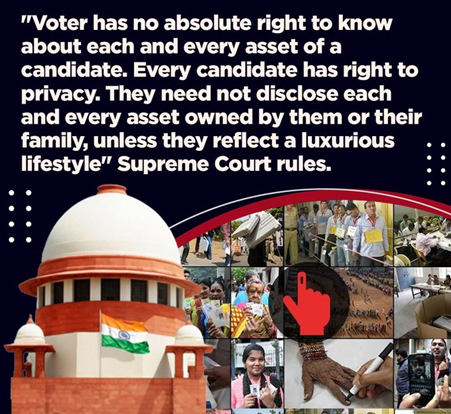PREVIOUS
Right to privacy from voters
April 14 , 2024
615 days
879
0
- The Supreme Court held that an election candidate has a right to privacy from voters.
- So, no need to lay out every scrap of his or her personal life and possessions, past and present, for the electorate to examine with a magnifying glass.
- The candidate’s choice to retain his privacy on matters which were of no concern to the voters or were irrelevant to his candidature for public office did not amount to a ‘corrupt practice’ under Section 123 of the Representation of People Act, 1951.
- Such non-disclosure would not amount to a “defect of a substantial nature” under Section 36(4) of the 1951 Act.

Leave a Reply
Your Comment is awaiting moderation.


